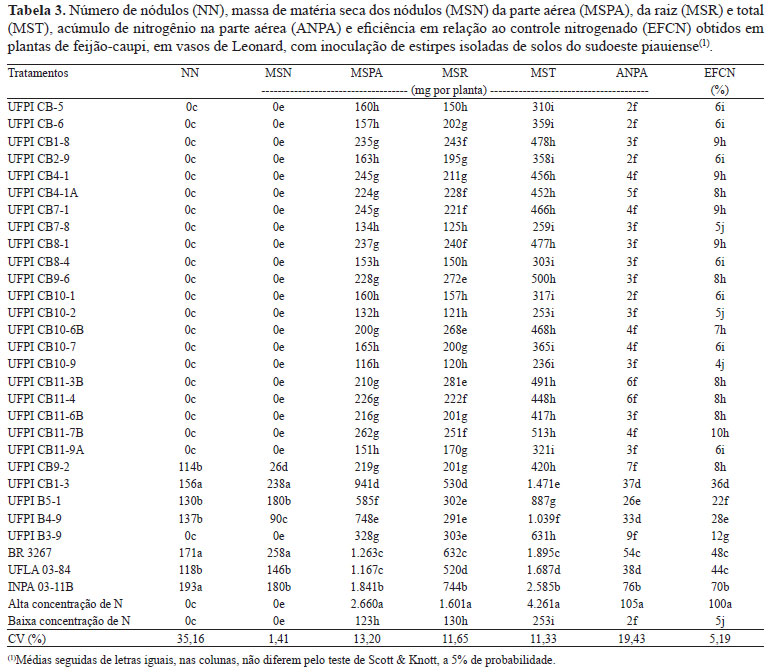The objective of this work was to evaluate the potential for plant growth promotion and the genetic diversity of bacteria isolated from nodules of cowpea grown in Cerrado soils in the state of Piauí, Brazil. Twenty-six strains were evaluated as to their ability to fixate free-living nitrogen, solubilize inorganic phosphates, produce indole-3-acetic acid (IAA) in the absence and presence of tryptophan (100 mg L-1), produce nodules, and promote cowpea growth in Leonard jars. No strain was able to fixate free-living nitrogen, and 69% were able to solubilize calcium phosphate in vitro. In the presence of tryptophan, all strains were able to synthesize IAA in the 79 medium, and 80% synthesized IAA in the DYGS medium. Only four strains nodulated cowpea. The sequencing of the 16S rRNA gene identified the nodulating strains as belonging to the genera Bradyrhizobium, Rhizobium, Bacillus, and Paenibacillus. Among the non-nodulating strains able to promote cowpea growth are the genera Bacillus and Paenibacillus.
indole-3-acetic acid; biological nitrogen fixation; phosphate solubilization




